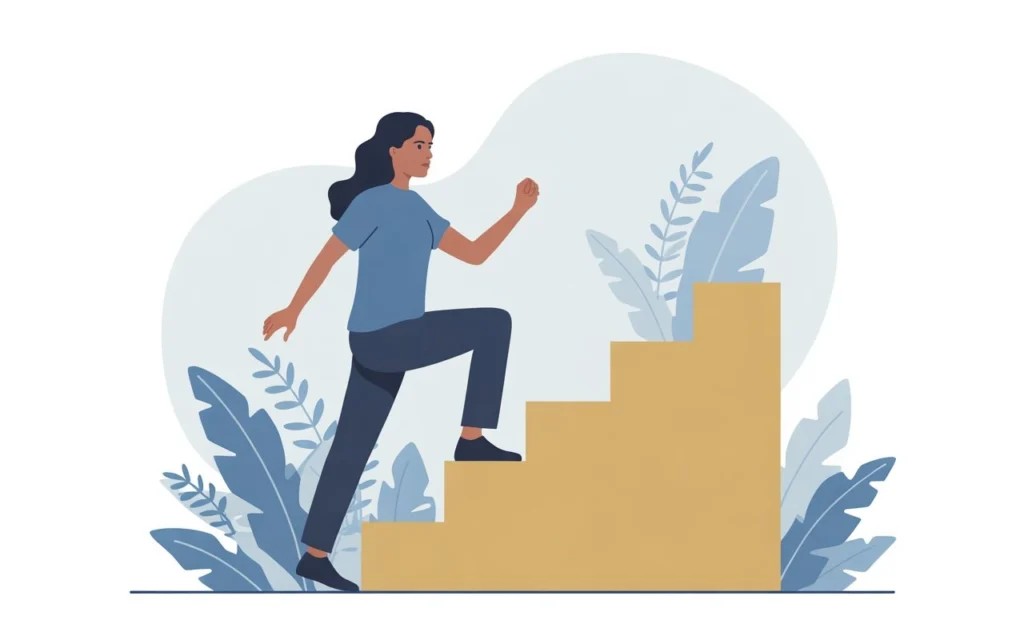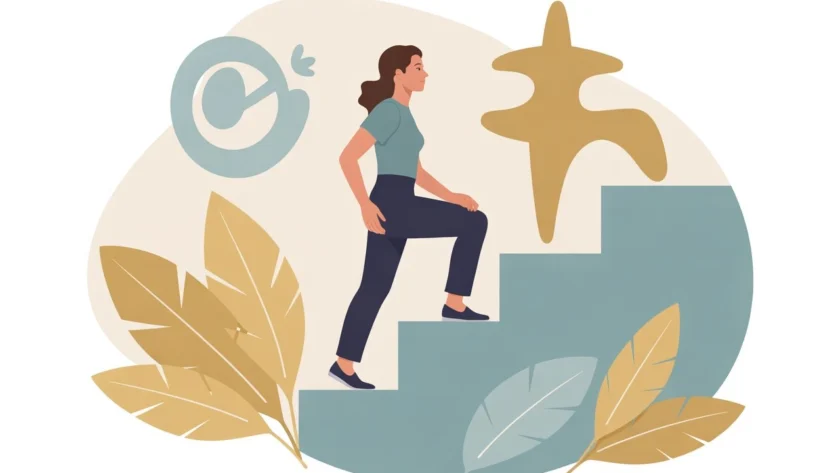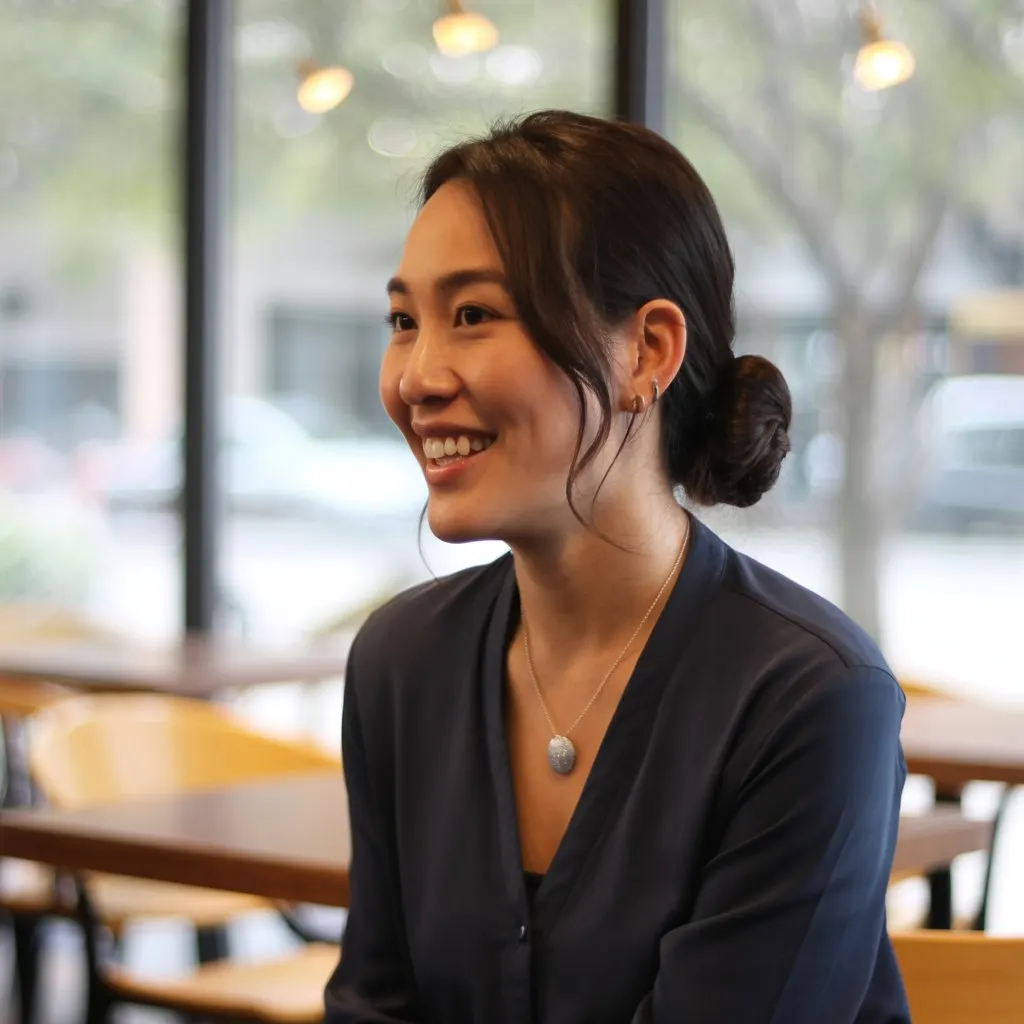I’ll never forget the first time I walked into a new church alone. My palms were sweating, my heart was racing, and I must have circled the parking lot three times before finally working up the courage to park. As I sat there gripping the steering wheel, I wondered if everyone would notice how nervous I was, if I’d say something embarrassing, or if I’d just end up sitting alone in the back row feeling more isolated than when I stayed home.
Sound familiar? If you’ve ever felt that familiar cocktail of dread and longing before social situations, you’re definitely not alone. Social anxiety affects about 15 million adults in the United States, and I’ve learned something important over my years of walking through this with others: experiencing social anxiety doesn’t mean you’re weak, faithless, or fundamentally flawed. It means you’re human, dealing with something that can absolutely be managed with the right tools and God’s faithful presence.
Here’s what I’ve discovered through my own journey and years of helping others find their footing: overcoming social anxiety isn’t about becoming a different person or never feeling nervous again. It’s about developing practical self-help techniques that allow you to show up authentically, even when your heart is pounding. Today, I want to share the strategies that have made the biggest difference—techniques you can start using right away, whether you’re facing a work presentation, a church potluck, or just the prospect of making small talk at the grocery store.
What Social Anxiety Really Looks Like
Before we dive into solutions, let’s get honest about what we’re actually dealing with. Social anxiety isn’t just being shy or preferring quiet evenings at home—though there’s absolutely nothing wrong with either of those things. Social anxiety is that overwhelming fear of judgment, embarrassment, or rejection that can make even simple interactions feel like stepping into a spotlight.
Maybe you know the feeling: your mind goes blank when someone asks how you’re doing, you replay conversations for hours afterward analyzing every word you said, or you avoid social situations altogether because the anticipation feels unbearable. I used to think I was the only person who practiced ordering coffee in my head before getting to the counter, but it turns out this kind of mental rehearsal is incredibly common.
What I’ve come to understand is that our brains are actually trying to protect us. When we’ve experienced judgment or rejection in the past—and let’s be honest, we all have—our nervous system gets really good at scanning for potential social threats. The problem is, it sometimes sees danger where there isn’t any.
The beautiful truth I hold onto is this: God created us for connection. Genesis tells us it’s not good for man to be alone, which means this deep longing for authentic relationships isn’t something to be ashamed of—it’s actually part of how we’re designed. The challenge is learning to pursue connection even when anxiety is whispering warnings in our ear.

Building Your Foundation: Spiritual Grounding for Social Confidence
When I’m feeling overwhelmed by social anxiety, the first place I turn isn’t to breathing techniques or positive self-talk—though those are helpful too. I start by remembering who I am in God’s eyes, because that truth anchors me when everything else feels shaky.
I keep a small card in my wallet with Psalm 139:14 written on it: “I praise you because I am fearfully and wonderfully made.” When I’m sitting in my car before a social event, feeling like I’m about to walk into a room full of people who are smarter, funnier, and more put-together than me, I read those words and remember something crucial: my worth isn’t determined by how perfectly I perform in conversation.
Prayer has become my go-to tool for social anxiety, but not in the way you might expect. I used to pray that God would take away my nervousness entirely, but now I pray for His presence with me in the nervousness. There’s something powerful about saying, “God, I’m scared, but I trust that You’re with me” as I walk through those church doors or into that work meeting.
One practice that’s been game-changing for me is what I call “identity anchoring.” Before social situations, I take a moment to remind myself of these truths: I am loved unconditionally by the Creator of the universe. I am His daughter. I have something valuable to contribute. My awkward moments don’t disqualify me from belonging.
This isn’t about pumping myself up with positive thinking—it’s about grounding myself in spiritual reality when anxiety tries to rewrite my story.
The Power of Mindful Breathing Techniques
Here’s something that might surprise you: the way you breathe can completely transform how you feel in social situations. When we’re anxious, our breathing becomes shallow and rapid, which sends a signal to our brain that we’re in immediate danger. But we can actually interrupt this cycle and calm our nervous system through intentional breathing.
The technique that’s been most helpful for me is called “box breathing,” and I learned it from my Christian counselor during one of my most difficult seasons. Here’s how it works: breathe in slowly for four counts, hold your breath for four counts, exhale slowly for four counts, then hold empty for four counts. Repeat this pattern four to six times, and I promise you’ll notice a shift.
What I love about this technique is that you can do it anywhere without anyone noticing. I’ve done box breathing in bathroom stalls before presentations, in my car before social gatherings, and even discreetly during conversations when I felt my anxiety rising. It’s like having a reset button you can access anytime.
Sometimes I’ll combine this breathing with a simple prayer: “Lord, as I breathe in, fill me with Your peace. As I breathe out, help me release this fear.” There’s something beautiful about turning a practical anxiety technique into a moment of connection with God.
Another breathing exercise I use is what I call “belly breathing.” Place one hand on your chest and one on your belly. When you’re breathing calmly, the hand on your belly should rise and fall more than the hand on your chest. Most of us breathe too shallowly when we’re anxious, so practicing deeper, slower breaths can signal safety to our nervous system.
Mindfulness: Staying Present Instead of Fortune-Telling
One of anxiety’s favorite tricks is pulling us into the future, where it specializes in catastrophic storytelling. Before I learned about mindfulness, I would arrive at social events already exhausted because I’d spent the entire week imagining all the ways the interaction might go wrong. Now I know better.
Mindfulness brings us back to the present moment—the only place where we actually have any control. When I feel my mind starting to spiral into “what if” scenarios, I use a technique called “5-4-3-2-1 grounding.” I identify five things I can see, four things I can hear, three things I can touch, two things I can smell, and one thing I can taste.
This exercise works because it anchors you in reality instead of anxiety’s fictional future. Plus, it often reveals that the present moment isn’t nearly as threatening as my imagination made it seem. That person across the room isn’t actually staring at me with judgment—they’re probably thinking about their grocery list or wondering if they have spinach in their teeth.
During conversations, I practice what I call “curious listening.” Instead of monitoring my own performance and worrying about what I’ll say next, I focus on being genuinely interested in what the other person is sharing. It’s amazing how much less anxious I feel when I’m truly present with someone rather than half-listening while planning my response.
I’ve also learned to notice when my mind starts time-traveling. If I catch myself thinking, “What if I embarrass myself?” or “Everyone will think I’m boring,” I gently redirect my attention to what’s actually happening right now. Usually, what’s happening right now is much less scary than what might happen later.
Progressive Muscle Relaxation: Releasing Physical Tension
Social anxiety doesn’t just live in our thoughts—it takes up residence in our bodies too. I used to carry so much tension in my shoulders that I’d end up with headaches after social events. My jaw would be clenched for hours, and I didn’t even realize I was doing it. Learning to recognize and release physical tension has been crucial for managing my social anxiety.
Progressive muscle relaxation is beautifully simple but incredibly effective. Starting with your toes, you systematically tense each muscle group for about five seconds, then release and notice the contrast. Work your way up through your feet, calves, thighs, abdomen, hands, arms, shoulders, neck, and face.
I often do a shortened version of this in my car before social events. I’ll tense and release my shoulders, unclench my jaw, and relax my hands. As I release the physical tension, I imagine releasing my worries to God as well. First Peter 5:7 tells us to “cast all your anxiety on Him because He cares for you,” and I’ve found that this verse becomes more than just nice words when I combine it with physical release.
Sometimes I’ll do what I call “stealth relaxation” during social situations. If I notice my shoulders creeping up toward my ears or my hands forming fists, I’ll consciously relax those muscles. No one else needs to know I’m doing anxiety management—it just looks like I’m adjusting my posture.
The beautiful thing about progressive muscle relaxation is that it teaches your body what calm feels like. The more you practice the contrast between tension and relaxation, the better you become at recognizing when anxiety is building up physically, which gives you the chance to address it before it becomes overwhelming.
Gradual Exposure: Taking Brave, Small Steps
Now, I’m not going to tell you to “just face your fears” and throw yourself into the social deep end. That approach often backfires and can actually make anxiety worse. But I will share something I’ve learned about the power of gentle, gradual exposure to the situations that make us nervous.
The key word here is gradual. Think of it like learning to swim—you don’t start by jumping off the high dive. You start in the shallow end, maybe just getting your feet wet. With social anxiety, this might mean starting with low-stakes interactions and slowly building your confidence.
When phone calls felt impossible for me, I started by calling businesses to ask about their hours—brief, straightforward conversations with strangers I’d never have to see again. Then I progressed to calling friends, then making appointments, then handling more complex phone interactions. Each small victory taught my brain that phone conversations weren’t actually life-threatening.
If group conversations feel overwhelming, maybe start by making eye contact and smiling at people you pass. If that feels comfortable, progress to brief pleasantries with cashiers or neighbors. Then maybe try asking one question in a small group setting. The goal isn’t to become the most talkative person in the room—it’s to prove to yourself that you can handle these interactions.
Here’s something beautiful I’ve discovered: God meets us in our small steps of courage. He doesn’t wait for us to be brave enough for the big challenges—He celebrates our willingness to try, even when our hands are shaking and our voice is wavering.
I keep an “exposure ladder” in my journal where I list social situations from least to most anxiety-provoking. Then I work my way up gradually, celebrating each small victory along the way. Remember, courage isn’t the absence of fear—it’s feeling the fear and taking the next right step anyway.
Challenging Anxious Thoughts: Becoming Your Own Best Friend
Anxiety is a terrible storyteller, but it’s very convincing. It specializes in worst-case scenarios and mind-reading, telling us that everyone is judging us harshly when the reality is usually much more gentle. Learning to question these anxious thoughts has been one of the most valuable skills I’ve developed.
When my brain starts its familiar refrain—”Everyone thinks you’re weird,” “You’re going to embarrass yourself,” “Nobody wants to talk to you”—I’ve learned to pause and ask some important questions: Is this actually true? What evidence do I have for this thought? What would I tell a dear friend who was thinking this about themselves?
Often, I discover that my anxious thoughts are based on assumptions rather than facts. And even when there’s a grain of truth—maybe I did say something awkward or stumble over my words—I can ask myself: “So what? Does this mean I’m fundamentally flawed as a person, or does it mean I’m human?”
I keep what I call an “evidence journal” where I write down positive social interactions—times when someone laughed at something I said, thanked me for listening, seemed genuinely happy to see me, or when conversations flowed naturally. When anxiety tries to convince me that all my social interactions are disasters, I have concrete evidence to the contrary.
One thought pattern I’ve had to work particularly hard to challenge is mind-reading. You know what I mean—assuming you know exactly what other people are thinking about you. “She thinks I’m boring.” “He’s judging my outfit.” “They’re all wondering why I’m here.” The truth is, most people are far too concerned with their own social performance to be harshly analyzing yours.
Remember, even Jesus experienced misunderstanding and rejection. If the Son of God had people who didn’t appreciate His presence or understand His heart, we can certainly extend grace to ourselves when social interactions don’t go perfectly.
Building Your Personal Social Anxiety Toolkit
Over the years, I’ve developed what I call my social anxiety toolkit—a collection of strategies I can access depending on the situation and my current stress level. Having these tools ready makes me feel more confident heading into social situations because I know I can handle whatever comes up.
Before Social Events:
- Spend a few minutes in prayer, asking for God’s peace and presence
- Do several rounds of box breathing in the car
- Review my identity anchors and remember whose I am
- Set realistic expectations (I don’t need to be the life of the party)
- Have a few conversation starters ready (questions about others work beautifully)
During Social Situations:
- Focus on listening rather than performing
- Use bathroom breaks for quick breathing exercises or silent prayers
- Practice curious questioning—people love talking about their interests
- Remember that awkward moments pass quickly and most people forget them
- Give myself permission to leave early if needed
After Social Events:
- Process the experience with God, acknowledging what went well
- Write down any positive interactions in my evidence journal
- Challenge any negative thoughts that arise with gentle questions
- Celebrate small victories, even if the overall event felt difficult
- Practice self-compassion for any moments I wish had gone differently
The goal isn’t to use every tool every time, but to have options available when I need them. Sometimes just knowing I have strategies ready makes the anxiety less intense.
The Healing Power of Safe Community
Here’s something that might sound counterintuitive: healing from social anxiety often happens in community, not in isolation. I know this can feel overwhelming—why would someone with social anxiety need more social interaction? But safe, supportive relationships become the training ground where we learn that connection is possible and worthwhile.
If you’re part of a faith community, consider looking for smaller group settings where authentic sharing is encouraged. Bible studies, prayer groups, or service teams often provide the kind of deeper connection that helps anxiety lose its grip. These environments usually focus on something beyond small talk, which can actually make socializing easier.
I remember joining a small group at church where we studied the book of Philippians together. Having a shared focus took the pressure off performing socially, and over time, I developed some of my deepest friendships in that circle. When the conversation revolves around Scripture and spiritual growth, there’s less pressure to be entertaining or impressive.
If your current faith community doesn’t feel safe yet, that’s okay too. Maybe start with an online support group or a hobby-based meetup where you share common interests with others. The key is finding spaces where you can practice authentic connection without the pressure of perfection.
Being honest about my struggles with social anxiety has actually deepened my relationships. When I stopped pretending to have it all together, people felt more comfortable being real with me too. Turns out, vulnerability creates connection, and most people are relieved to discover they’re not the only ones who feel nervous in social situations.
Recognizing When You Need Additional Support
While self-help techniques can be incredibly powerful, I want to acknowledge that sometimes we need additional support, and there’s absolutely no shame in that. God often works through trained counselors and therapists to bring healing into our lives, and seeking professional help can be an act of stewardship of the life He’s given us.
Consider reaching out for additional support if your social anxiety is preventing you from engaging in work, relationships, or activities that are important to you. Some signs it might be time to connect with a counselor include: experiencing panic attacks in social situations, avoiding social contact for extended periods, having difficulty functioning at work or school due to social fears, or relying on alcohol or other substances to cope with social anxiety.
When looking for a therapist, consider finding someone who understands both mental health and faith. Many Christian counselors are trained in evidence-based treatments for anxiety while also honoring the role of spirituality in healing. You don’t have to choose between professional help and faith—they work beautifully together.
Cognitive Behavioral Therapy (CBT) has been particularly helpful for social anxiety, as it focuses on identifying and changing the thought patterns that fuel our fears. Many people find that combining professional therapy with the spiritual practices and self-help techniques I’ve mentioned creates a comprehensive approach to healing.
Creating Long-Term Resilience and Growth
Overcoming social anxiety isn’t usually a once-and-done victory—it’s an ongoing journey of growth, learning, and increasing freedom. Some days will be better than others, and that’s completely normal. Progress isn’t always linear, and setbacks don’t erase the ground you’ve gained.
I’ve learned to think of my social anxiety management as a spiritual discipline, like prayer or Bible study. It requires regular practice and attention, but it becomes more natural over time. The breathing exercises that felt awkward at first now come instinctively when I need them. The thought-challenging questions that I had to consciously remember are now automatic responses to anxious thinking.
One practice that’s been particularly meaningful for me is ending each day by thanking God for one positive social interaction, no matter how small. Maybe it was a genuine smile exchanged with a stranger, a moment of real connection during a conversation, or successfully speaking up in a meeting. Gratitude helps retrain my brain to notice the positive aspects of social connection rather than just scanning for potential threats.
I also try to remember that everyone—and I mean everyone—has moments of social awkwardness. That confident person at work? They’ve had conversations that fell flat. That seemingly perfect friend? They’ve said things they wish they could take back. Social grace isn’t about never making mistakes—it’s about recovering from them with humor and moving forward.
As I’ve grown in managing my social anxiety, I’ve discovered something unexpected: my experience with anxiety has actually made me more compassionate and better at connecting with others. I notice when someone else seems nervous and try to put them at ease. I ask follow-up questions because I remember what it feels like when conversations die out. My struggles have become a source of empathy and understanding.
Embracing Authentic Connection Over Perfect Performance
As I finish writing this, I’m thinking about that woman who used to circle church parking lots, too scared to go inside. She’s still part of me, but she no longer gets to make all the decisions about my social life. Through gentle practice, spiritual grounding, and the kind of patient grace that only God can provide, I’ve discovered something beautiful: authentic connection is worth the risk.
The goal isn’t to never feel nervous in social situations—it’s to feel the nervousness and show up anyway. It’s to remember that stumbling over words or having awkward moments doesn’t disqualify us from belonging. It’s to trust that the God who knit us together in our mother’s womb didn’t make a mistake when He made us social beings who long for connection.
Your social anxiety doesn’t define you. It’s simply one chapter in your story, and like all difficult chapters, it can become a source of wisdom, compassion, and resilience. The self-help techniques I’ve shared—breathing exercises, mindfulness practices, gradual exposure, thought challenging, muscle relaxation, and spiritual grounding—aren’t magic solutions. They’re tools that require practice, patience, and often a healthy dose of prayer.
But here’s what I know to be absolutely true: God desires connection for you. He created you for relationship—with Him and with others. Your anxiety might whisper that you’re too much or not enough, but God’s voice says you are fearfully and wonderfully made, loved beyond measure, and worthy of authentic friendship and community.
Start where you are. Use what resonates with you. Be patient with yourself as you learn and grow. Celebrate the small victories—they’re actually quite large when you consider the courage they represent. And remember that on the other side of your social anxiety is a community of people who need exactly what you have to offer: your unique perspective, your hard-won compassion, and your authentic self.
The parking lots and fellowship halls are still there, and sometimes my heart still pounds before I walk through those doors. But now I know something I didn’t know before: on the other side of those doors are people who are probably just as nervous as I am, hoping for the same thing—genuine connection, acceptance, and the reminder that they’re not alone in this beautiful, messy journey of faith and life.
You don’t have to let social anxiety keep you on the sidelines. With God’s help, practical tools, and gentle persistence, you can find your way into the authentic community your heart is longing for. Take a deep breath, say a prayer, and take the next small step. I promise you won’t be walking alone.




